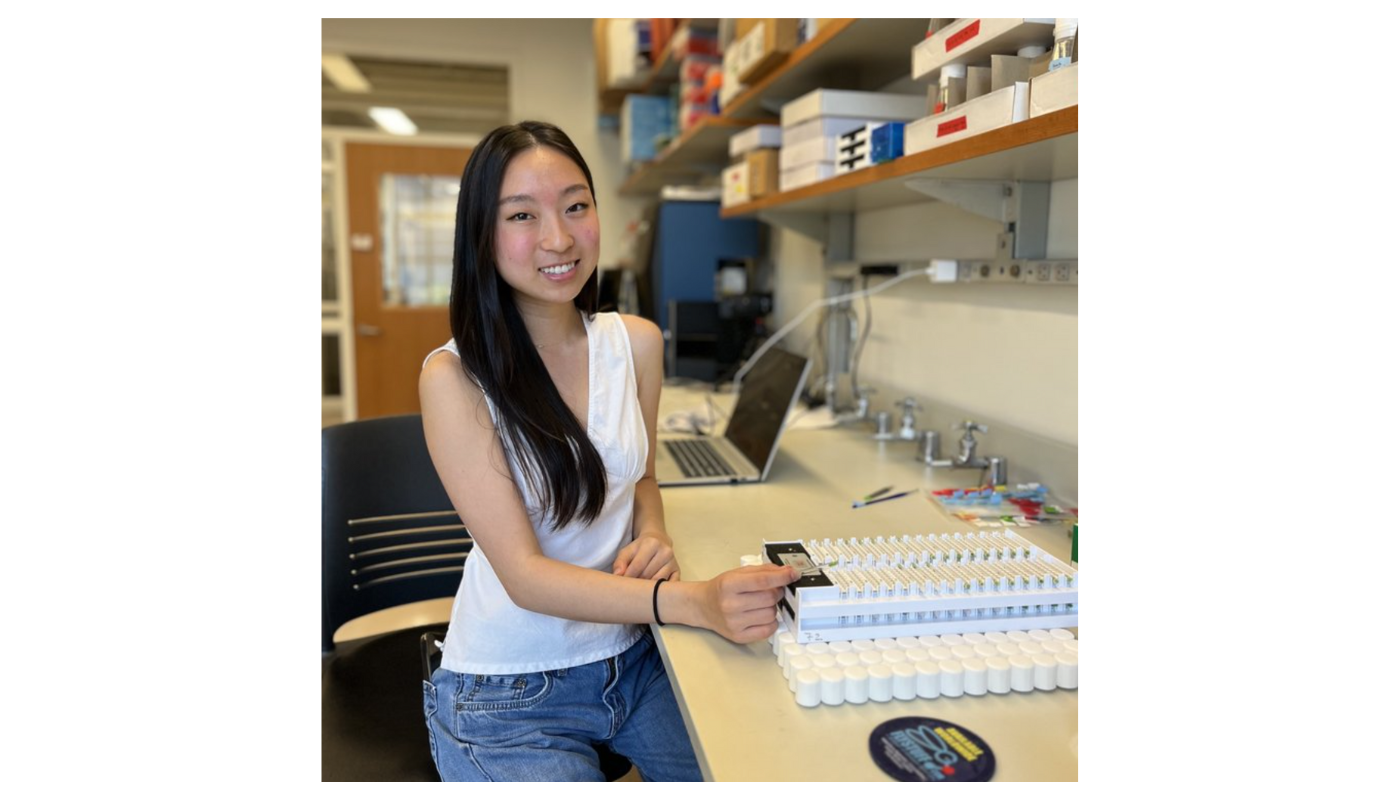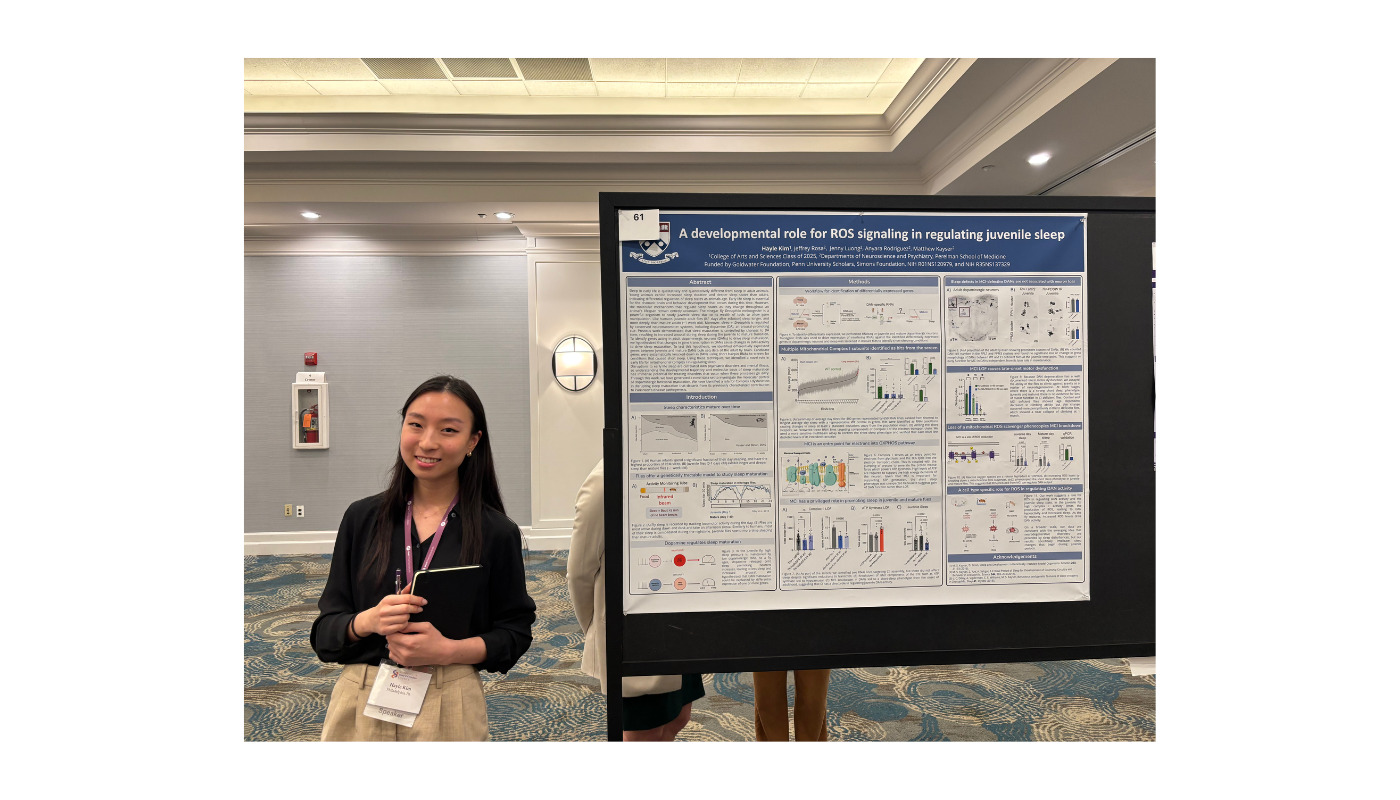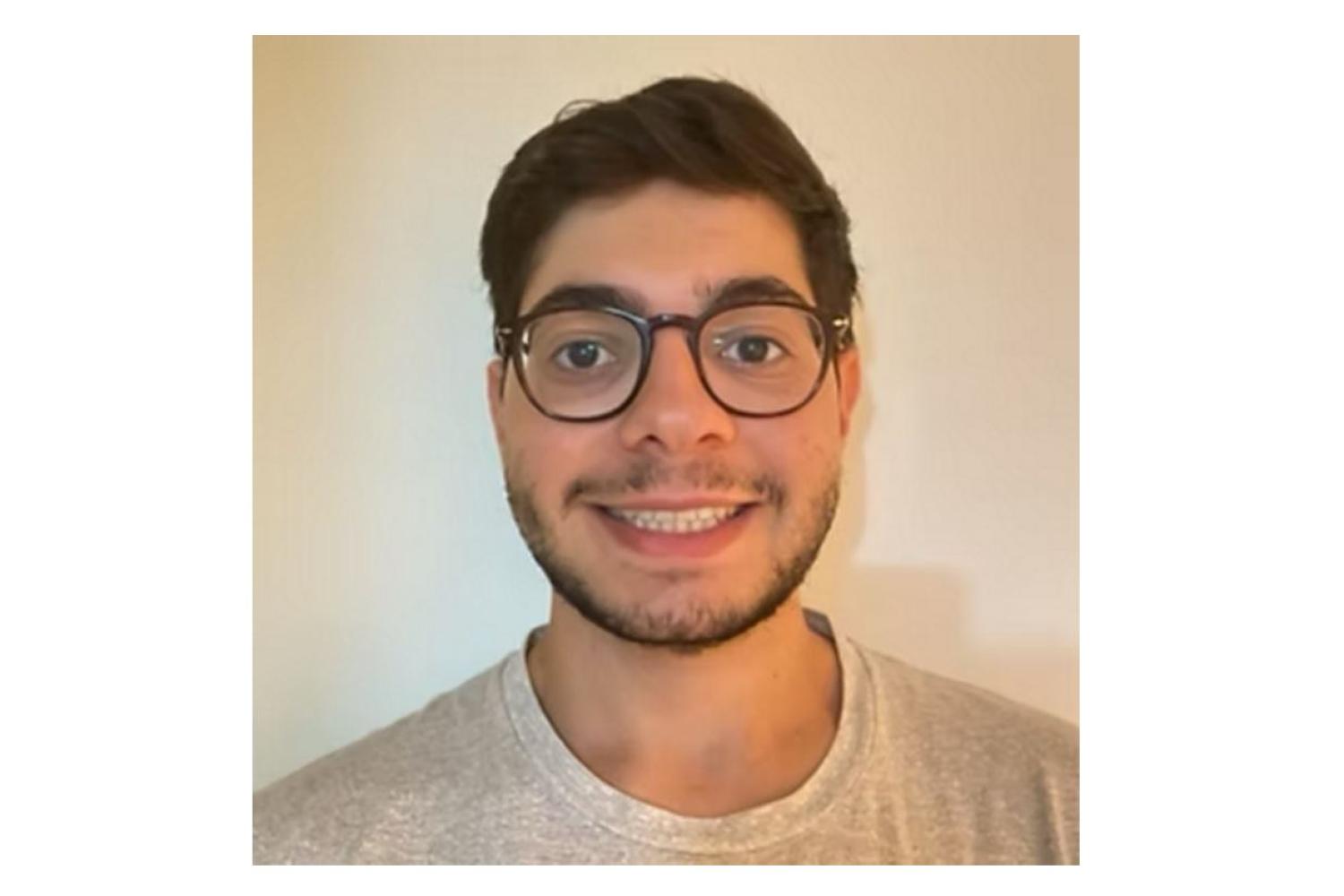
My intrigue with sleep began as I prepared a lecture for my high school’s science club. Having frequently endured sleep paralysis, I felt a strong urge to understand the biological bases for these episodes. When I volunteered at Blount Senior Care Partners in my home state of Tennessee, many senior patients expressed difficulty falling asleep and resistance to prescription sleep aids. Similarly, when volunteering at the Children’s Hospital of Philadelphia (CHOP), I saw young children trapped in cycles of sleeplessness and fatigue. Despite observing these various sleep issues across multiple populations, I could only find pages and pages of ambiguous answers to my questions on the biological mechanisms prompting these episodes.
These personal and professional experiences sparked my desire to understand the relationship between sleep and development, leading me to join Dr. Matthew Kayser’s lab in November 2021 to study the molecular regulation of early-life sleep. Although sleep disruptions have been linked to neuropsychiatric disorders and mental illness, the precise molecular mechanisms underlying these associations remain poorly characterized. Thus, currently available treatments can only alleviate symptoms rather than address the root causes. This gap is what I hope to address through my research.
At the Kayser Lab, under the mentorship of post-doctoral scientist Dr. Jeffrey Rosa, I use genetic tools available in fruit flies to discover genes in dopaminergic neurons that regulate changes in sleep characteristics over the lifespan. My experience in the lab fueled my interest in identifying the genetic underpinnings of sleep maturation, which manifests in neuropsychiatric diseases when disrupted. While my involvement with sleep research started as a way to satisfy my personal curiosities, my clinical experiences unexpectedly reinforced the need for a deeper understanding of sleep disturbances in medicine.
In the summer of 2024, with the support of University Scholars, I worked on validating and characterizing the genes I found to play a crucial role in sleep regulation. Interestingly, I discovered that disrupting Complex I led to shorter and more fragmented sleep in adult flies, implicating a metabolic component to sleep maturation. Previous literature has defined the role of Complex I in maintaining dopaminergic neuron function during aging, but my results suggest an early and privileged requirement for Complex I in maintaining sleep. This strong sleep phenotype could suggest that Complex I dysfunction in dopaminergic neurons first manifests as a sleep disorder before neurodegeneration emerges.
Beyond my intrigue with the research itself, my time in the Kayser Lab has been transformative on a personal level. My principal investigator and post-doctoral mentor helped me navigate unexpected challenges and reinforced my love for discovery, ultimately motivating me to pursue a joint MD-PhD degree. Even as an undergraduate, I always felt that my contributions were valued, and I’ve grown as an independent scientist with their support.

Above: Hayle Kim presenting her work at a poster session at the Advances in Sleep and Circadian Sciences Conference in February 2025.
Additionally, I learned how to present my work effectively to lab members and the broader Penn community. In February 2025, with support from University Scholars, I attended the biennial Advances in Sleep and Circadian Sciences meeting in Clearwater, Florida. I delivered an oral presentation about my work, allowing me to share my findings with scientists from around the world. I was surprised to see how much interest my talk generated, as many people asked me questions during the poster session the next day. I had in-depth conversations with researchers I have admired for years and heard their insights on my research project. I have recently been investigating the role of Reactive Oxygen Species (ROS) in sleep and the brain, and a professor at UC Berkeley who also studies the topic gave helpful suggestions on what experiments to pursue next. I met one of my graduate school interviewers from Columbia and spoke with several MD-/PhD professors and potential mentors at schools to which I have been accepted. Overall, the conference greatly exceeded my expectations and reinforced my excitement for continuing sleep research.
Throughout my undergraduate career, I have enjoyed seeing the scope of research within the field of sleep. The technical skills, soft skills, and lasting relationships I have gained at the Kayser Lab will be invaluable for the next steps in my career. Research has been one of my favorite parts of being a Penn student, and I am extremely grateful for the University Scholars program, which allowed me to spend my final year doing what I love.
Interested in learning more about University Scholars? View other UScholars research experiences on our Student News page!
Related Articles
Energy and International Security Research Abroad
Annabelle Paradise ('25), an Earth and Environmental Science major, traveled to Norway and Lithuania to conduct research on sub-sea critical energy infrastructure security. Annabelle was mentored by Dr. Benjamin Schmitt (Department of Physics and Astronomy, Kleinman Center for Energy Policy) and this project was supported by the College Alumni Society Undergraduate Research Grant.My Most Rewarding Academic Experience
Manya Gupta ('25), a Political Science and Economics double major, conducted research on why many Indian households still cook with firewood despite receiving free liquified petroleum gas under government programs. Manya was mentored by Dr. Tariq Thachill (Department of Political Science) and this project was supported by the College Alumni Society Undergraduate Research Grant. Her thesis won one of three university-wide Phi Beta Kappa Best Thesis Awards, shared the Leo S. Rowe Prize for best thesis in comparative politics and international relations, and won the Holden Furber Prize for best undergraduate essay related to South Asia.